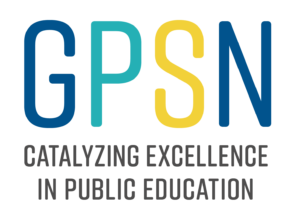Families Recognize Improvements But Need Increased Safety, Mental Health Support, and Personalized Learning.
For the fourth consecutive year, our annual representative poll of Los Angeles public school families amplifies their voices as essential co-educators. This year’s Family Insights poll captures perspectives from over 500 LAUSD families conducted in fall 2024. Given the significant events of the November 2024 election and January 2025 fires, follow-up interviews were conducted in February 2025 to see how these significant events shaped their educational priorities.
Families report encouraging progress—over 90% noticed school improvements in the past year. Support for district leadership has strengthened significantly, with nearly three-quarters approving of both Superintendent Alberto Carvalho (74%) and the LAUSD School Board (72%), ratings that surpass last year’s figures. Most families assign their schools a “B” grade overall, acknowledging positive momentum while recognizing opportunities for continued growth.
Follow-up interviews conducted in February 2025 revealed that despite recent challenges, families remain deeply committed to advancing educational opportunities for all students. Their insights provide valuable guidance for district leaders as they continue implementing strategic initiatives and responding to evolving community needs.
Major Trends and Findings
Families share their perspectives on the state of Los Angeles public education.
- How families feel about the district
Families are more likely than last year to believe LAUSD students and their own children are performing at the right level or above in reading and math. Almost 90% rate instruction at their child’s school positively.
- What matters most to families
Meeting students’ emotional and mental health needs has become the top priority in public education, cited by 52% of families. They want schools to provide mental health programs both during and outside the school day, with particular interest in counseling and help identifying students’ challenges.
- What families want to see
Families continue to prioritize academic support programs above all. They also identify free home internet (47%) and high-quality tutoring (47%) in their top three priorities.
- How are families represented in decision-making
Despite improvements, more than half of families (55%) still do not feel greatly represented in district policy decisions, though this sentiment improved from last year when just 34% felt well-represented.
- How families feel about economic and safety issues
Follow-up interviews revealed that the economy is currently the most pressing concern for many families, alongside safety worries related to increased deportation enforcement and recent environmental dangers. These concerns heighten families’ desires for expanded and individually tailored support for their children.
- How much access families have to digital resources
More families report barriers to quality internet access compared to the previous year, with only 15% reporting no barriers (down from 26%). Cost remains the biggest challenge, especially among charter school families (65%) and those with lower incomes.
- How committed families are to their current school system
94% of families indicate they are likely to keep their children in LAUSD schools, with 46% saying they are extremely likely to do so (up 9 percentage points from last year).
Methodology
The poll was conducted by Penta Group over the phone and online from August 26 through September 20, 2024, among a representative sample of 506 families with school-aged children attending district and charter public schools within Los Angeles Unified boundaries. Following the November 2024 election and January 2025 fires, a second phase of in-depth interviews was conducted from February 3 through February 12, 2025, to explore how recent events may have shifted perspectives.
Potential respondents were invited via email or phone to participate in the survey, with 40% of surveys conducted by phone. Eighty-four percent of all interviews were conducted in English and 16% in Spanish. The margin of error is ±4.4 percentage points for the full survey sample, and higher among subgroups and questions not asked of the full sample.
